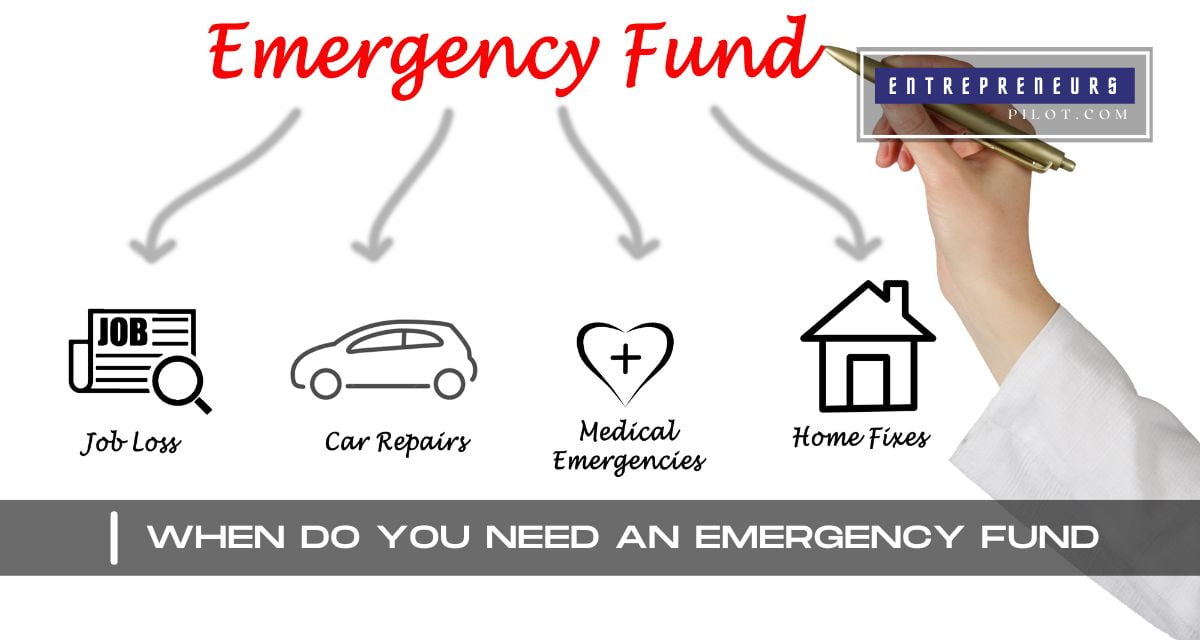Introduction
Ever faced a situation so unexpected it left your finances gasping for breath? Life, with its unpredictable twists, doesn’t always send a warning signal. While we’re often advised to save for a rainy day, the looming question remains: “When Do You Need An Emergency Fund?” It’s not just about having savings; it’s about knowing the precise moments to dip into that hard-earned stash. Picture this: an unexpected medical emergency, a sudden job loss, or perhaps a hefty car repair bill. Situations where the clock is ticking and decisions need to be prompt.
As you delve deeper into this read, we’re set to guide you through nine eye-opening scenarios that will unmistakably underline the critical nature of this question. The aim isn’t just to inform but to make you re-evaluate your preparedness for life’s uncertainties. Whether you’re a seasoned saver or someone just beginning to tread the financial planning path, the revelations ahead are bound to be enlightening. With each situation, you’ll uncover not just the ‘why’ but the ‘when’ of tapping into that emergency fund. Ready to embark on this journey of financial self-awareness? Let’s demystify the moments that dictate the crucial decision of using your safety net.
Table of Contents
As life throws us unexpected curveballs, we often find ourselves at financial crossroads and questioning whether our safety nets have sufficed. One of the most frequently asked questions regarding financial planning is when to use their emergency fund – an understanding that saving is universal but when to actually draw upon these reserves is often unclear.
Here are nine crucial situations in which having an emergency fund could save your finances:
1. Sudden Job Loss:
In an unpredictable job market, the risk of layoffs or redundancies looms large – having an emergency fund serves as a lifeline while you transition into new opportunities.
2. Unexpected Medical Expenses:
Medical emergencies don’t always make themselves known in advance, so having the financial cushion in place can mean choosing the best care without second guessing yourself.
- For Expert Financial Insights And Guidance, You Can Visit Our Sister Site – ArabsGeek.com Now!
- Curiosity Piqued? Dive Into the Most Captivating Financial Content by Visiting Our Homepage!
- Unlock Exclusive Business Opportunities! 🚀 Connect with Us Now at our Email: [email protected]!
3. Major Home Repairs:
Emergencies like roof or plumbing damage can create major financial strain. An emergency fund allows you to address these emergencies without derailment to your monthly budget.
4. Vehicle Breakdowns:
Repair costs associated with engine repairs or accident damages can quickly add up; having an emergency fund allows you to get back on the road faster without incurring debt.
5. Family Emergencies:
Being prepared for unexpected tragedies such as sudden deaths or emergency support needs can be stressful, so having instant funds available ensures you can be there when needed without financial strain.
6. Economic Downturns:
Recessions or economic slowdowns can have devastating repercussions for individual finances, leading to reduced income sources and assets. An emergency fund provides essential protection during such times of uncertainty.
7. Unexpected Moves:
Relocating for personal or professional reasons often incurs costs; saving can make this transition as seamless as possible.
8. Legal Situations:
Legal issues or disputes may surface unexpectedly, so having funds set aside to fund representation could make the difference between effective representation and financial strain.
9. Natural Disasters:
Floods, fires and other unpredicted natural disasters can leave unexpected expenses behind them such as temporary housing arrangements and property repairs – emergency funds provide vital security during these trying times.
Conclusion:
Understanding When Do You Need An Emergency Fund extends beyond simply financial prudence – it’s about finding peace of mind in our ever-evolving world. Being prepared for unpredictable moments and meeting challenges head-on requires proactive planning; by acknowledging these nine instances you’ll not only be equipped to face life’s curveballs with resilience but will also establish proactive financial habits to keep ahead of any financial surprises! So use these insights as the framework for your journey, staying one step ahead!











